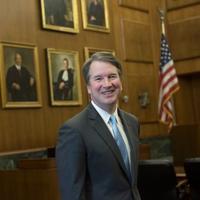
Vanessa Delgado, former California state senator and chair of the South Coast Air Quality Management District
LOS ANGELES - A California air pollution regulatory agency can use so-called zero emission standards to effectively ban the use of natural gas-fueled furnaces and other appliances, even though both federal law and a federal appeals court decision would otherwise prohibit such bans if imposed directly, a federal judge has ruled.
On July 18, U.S. District Judge Percy Anderson ruled in favor of the South Coast Air Quality Management District, rejecting challenges from a coalition of business groups, labor unions and others to zero emissions standards the regulatory body had imposed on a range of appliances, including large water heaters, small boilers and process heaters, designed to be fired with natural gas.
The SCAQMD is a regulatory body overseeing the implementation of air pollution standards in Los Angeles, Orange, Riverside and San Bernardino counties. The body is governed by a board including representatives from the four counties, the cities in each county and other members appointed by the governor, the Speaker of the state Assembly and a state Senate committee.
The district's board is currently led by Chair Vanessa Delgado, a former California state senator who was appointed to the SCAQMD board by the state Senate.
In June 2024, the district implemented the new rule governing the covered natural gas appliances, requiring that all new appliances installed release zero nitrous oxide (NOx) emissions.
The district said the new rule is required to improve their efforts to fight smog, which is worsened by NOx emissions.
The new zero NOx emissions standards were quickly challenged in federal court by a coalition of groups. These included manufacturers of natural gas appliances, as well as homebuilders, labor unions and representatives of the hotel, restaurant and apartments rental industries in California and the U.S.
The lawsuit accused the South Coast district of using the new emissions rules to institute an illegal and unconstitutional ban on natural gas appliances in the four county region, as they said - and the court would agree - natural gas fired appliances could never produce zero NOx emissions, given the chemical composition of natural gas, which includes nitrogen.
Nitrogen is an inert gas, which means it cannot combust. It naturally bonds with oxygen in the air when heated at high temperatures, such as when natural gas is burned.
At the time the lawsuit was filed, the plaintiffs said the measure also would impose massive costs on businesses and property owners in the region, worsening several of the region's most pressing economic crises, including southern California's notorious lack of affordable housing.
The challengers further noted the South Coast district's decision to move ahead with effective natural gas appliance ban via the zero NOx emissions rule landed just a few months after a ruling from the U.S. Ninth Circuit Court of Appeals which had struck down an attempt to use a different kind of regulation to also effectively ban the installation of gas appliance in the city of Berkeley.
There, Berkeley had revised its building codes to prohibit the installation of new natural gas piping into homes and businesses.
That ordinance had been challenged by the California Restaurant Association, which argued the new building codes violated the federal Energy Policy and Conservation Act. The EPCA includes a so-called preemption clause, which forbids any state or local regulation that restricts the “energy use” of appliances or products for which a “federal energy conservation standard” has been enacted by the federal government, including natural gas appliances.
Berkeley said the ordinance didn't prohibit anyone from owning natural gas appliances. Instead, the ordinance merely redefined the level of energy use to zero, so it should fit within the EPCA.
Berkeley was backed in court by the administration of former President Joe Biden, a Democrat who had declared so-called "climate change" an emergency.
A federal judge ruled for Berkeley, stating she believed the EPCA's preemption applied only to laws and ordinances directly banning natural gas appliances.
At the Ninth Circuit, however, judges snuffed out that reasoning, saying building codes which effectively ban natural gas appliances can't stand under the EPCA.
“By its plain text and structure, EPCA’s preemption provision encompasses building codes that regulate natural gas use by covered products," wrote Judge Patrick Bumatay in the April 2023 ruling in the Berkeley case.
“And by preventing such appliances from using natural gas, the new Berkeley building code does exactly that.”
Nonetheless, in Los Angeles federal court, U.S. District Judge Percy Anderson said the EPCA's preemption clause doesn't extend to block state and local governments from imposing natural gas appliance bans by manipulating air quality standards to unobtainable levels.
The judge agreed the emissions rule amounts to a ban. But he said it does so through legal means not in conflict with federal law that would otherwise prohibit such a ban.
In his ruling, Anderson said the Ninth Circuit's holding in Berkeley should be read narrowly to apply only to the use of building codes which "imposed a complete physical impediment to the use of gas for coverer appliances in buildings where the gas lines were already there."
In this case, the South Coast district's zero NOx emissions standards don't address the installation of natural gas appliances or the infrastructure required to support them, or the energy levels the appliances may consume. Instead, the South Coast NOx standards regulate emissions the appliances may generate.
To strike down the NOx emissions standards would wrongly extend the EPCA law to thwart the ability of local and state agencies to regulate air quality and emissions - a result the judge said he had "no reason to believe that Congress had ever intended."
"Simply stated, the (South Coast district) Rule does not concern the energy use of appliances under the EPCA and is not preempted," Judge Anderson wrote.
Following the ruling, a spokesperson for the California Apartments Association said the challengers disagreed with Judge Anderson's ruling and interpretation of the Berkeley decision. While they may yet appeal back to the Ninth Circuit, the CAA said they are "reviewing options for contesting the ruling."
The challengers are represented in the action by attorneys Courtland L. Reichman, Brian C. Baran and Sarah O. Jorgensen, of the firm of Reichman Jorgensen Lehman & Feldberg, of Redwood Shores, California; John J. Davis Jr., of McCracken Stemerman & Holsberry, of Oakland; Matthew P. Gelfand, of Californians for Homeownership, of Los Angeles; Angelo I. Amador, of the Restaurant Law Center, of Washington, D.C.; and Sean M. Kneafsey, of the Kneafsey Firm, of Los Angeles.
The South Coast Air Quality Management District has been represented by attorneys Matthew D. Zinn, Lauren M. Tarpey and Ryan K. Gallagher, of Shute Mihaly & Weinberger, of San Francisco; and attorneys Bayron T. Gilchrist and Barbara Baird, general counsel and chief deputy district counsel, respectively, for the SCAQMD.






